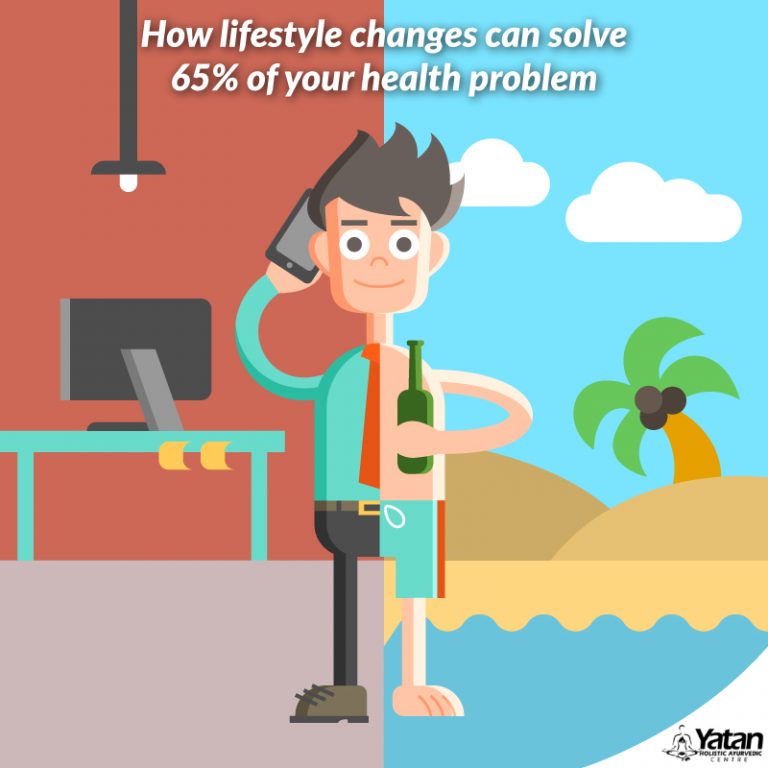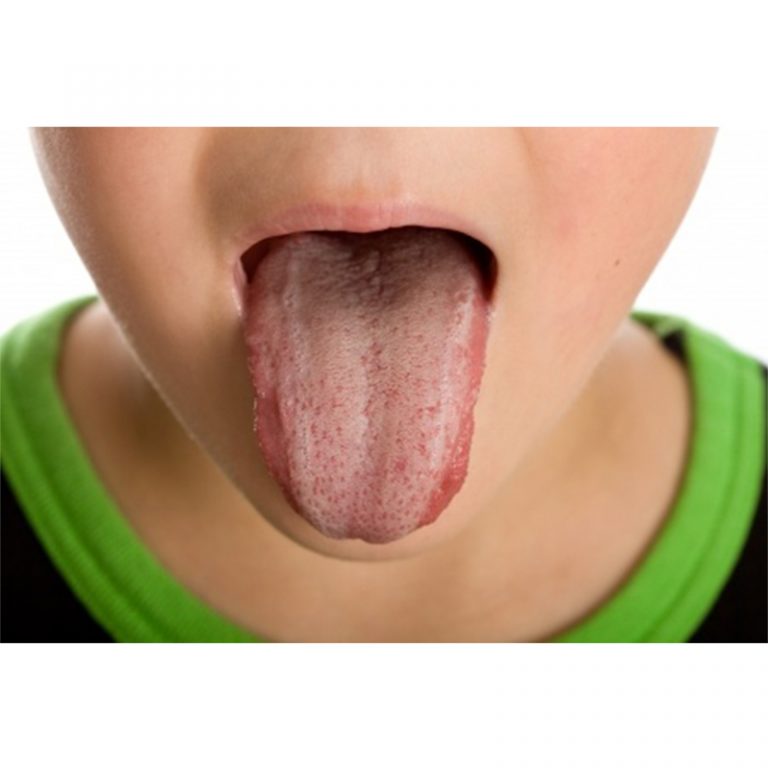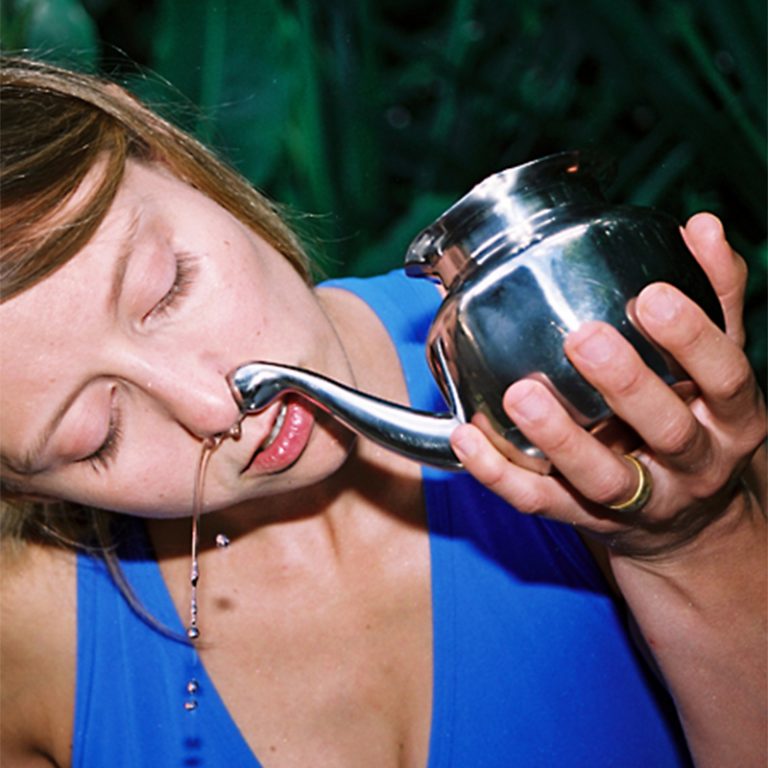The Types of Stress and their Physical Symptoms: Which Do You Have?
Feeling nervousness, fatigue, a sense of dread, a thumping heart or a throbbing head are symptoms everyone experiences at some point in their life. But did you know that these symptoms are more often than not related to some kind of internal condition, like stress?
Stress is a response that arises when the body and mind experience a threatening external situation. Stress often presents itself when we are doing something against our will or when a situation is out of our control.

This emotional disturbance frequently manifests as a physical disturbance (ie headache, muscle stiffness, palpitations, etc), which is why it is not always easy to pinpoint the exact cause of the stress. While Western Medicine tends to overlook the emotional factor by simply treating the physical symptoms, in Eastern holistic healing traditions such as Ayurveda the association between physical symptoms and underlying emotional symptoms is something that is always considered and addressed.
Stress can happen to any person of any age group, to both healthy and unhealthy people. Depending on your constitution and the cause behind it, stress will appear in the form of various symptoms.
Types of Stress
The following list aims to familiarise you with the different types of stress and their symptoms. Which of these have you experienced yourself?
Financial Stress
The lack of money or control thereof often fires up our stress response. This can lead to symptoms of fear, nervousness, pessimism, insomnia, anxiety for the future and lack of concentration. If you have these symptoms and are unsure why, you may want to question how you feel about your finances.
Relationship Stress
This stress affects both the mind and heart and can pertain to both a romantic relationship as well as a family relationship. It often exhibits changes in one’s mood and may lead to depression, appetite loss or overeating, nausea and lack of emotion.
Occupational/Work Stress
Work stress can have a detrimental effect on one’s overall health, because your job is something you do daily. This daily tension stresses the heart, liver and neurons. Stomach problems, such as indigestion and heartburn, are also extremely common.

Political/Legal Stress
No matter what country you are a citizen of, politics, laws and government will in one way or another affect you. This kind of stress often associates with fear for the future of the country as well as the individual and may lead to chronic worry, anxiety, hopelessness and insomnia.
Transportation Stress
Ever felt stressed out when travelling on public transport or driving? You could be suffering from Transportation Stress. Symptoms may include fear/panic, rapid heartbeat, elevated blood pressure and nausea. See our article on Stress and Heart Palpitations for a case study on this kind of stress.
Mission Failure Stress
If you are feeling depressed, lacking intimacy and avoiding social activities, it may be that you are failing to fulfil your life mission or life purpose. You are not in the life role you want to be and this is affecting both your heart and mind. Symptoms may also include fatigue, body aches, frequent infections, low energy and stomach disturbances.
Age-Related Stress
This is a broader term related to the stress we experience throughout our lives. Babies and children experience the stress of growing while teens experience the stress of school, exams and hormonal changes (Teenage Stress). Adults on the other hand will experience stress related to their hormones and bodily functions declining, like Menopausal Stress.

Everyday Stress
Daily stresses can wreak havoc on the entire body and mind. Much like Work Stress, stress that persists daily and chronically can cause stomach disorders, heart disease, low immunity and even memory loss.
Phobia Stress
If you intensely fear things like spiders, heights, blood, crowds or confined spaces then you may have a phobia. This phobia will undoubtedly trigger a stressful reaction, which may include rapid breathing, heart palpitations, sweating and fear of death. Luckily, this type of stress passes when you are no longer exposed to your phobia trigger.
Cellular Stress
This kind of stress is deeply embedded in your system. Symptoms may include unexplained vibrating, pulsating and throbbing in various parts of the body, muscle and organ twitching and ticks, all due to the damaged communication between organs.
Climate/Environmental Stress
The body may experience stressful reactions when the climate or surrounding environment changes. Some people who are hyper-sensitive will stress at the slightest change in weather. This kind of stress is due mostly to sensitive neurons rather than emotions directly. Symptoms may include headaches, fatigue, drowsiness, and chills or sweating when other people around you are not reacting the same way.
Sickness Stress
People whose health is poor, or who believe so, chronically visit doctors. The anticipation of results, the examination prepping and the recurrent worries that accompany such procedures may all lead to long-term stress, fear of disease or death, hypochondriasis and the lack of joy for life.

Worry Stress
This is the stress nervous worriers experience. This stress relates to the nervous system and the need for the worried person to protect themselves. Most chronic worriers have nothing “real” to worry about and are simply anxious.
DNA Stress
The type of stress that seeps deeply into one’s DNA is often related to life-threatening or life-altering trauma that is left unhealed. This stress lingers for years, frequently resulting in auto-immune diseases or excessive reactions of the immune system.
Biochemical Stress
This type of stress affects the adrenal glands and is often the result of chronic worry and fatigue. It may also be related to hormonal imbalances in the brain and chronic hormonal disorders. Symptoms include insomnia, night sweats or chills, fatigue, drowsiness and anxiety.
Nervous Stress
When the neural pathways of the body are disturbed, this results in Nervous Stress. While this kind of stress seems more physical rather than emotional (nerve twitching, involuntary jerking, nerve damage), it can be the result of intense or unexpressed emotions.
Software Stress
The body is like a computer. It has to run software programmes or it cannot be of any use. That said, the body too runs its own software programmes (circulation, digestion, respiration, reproduction and so on) through its DNA. When these programmes break down, the individual may experience sleep problems, nerve damage, low immunity and muscle or nerve spasms.

Planetary Stress
Do you read your weekly Horoscope? Then you know how the planets affect you. While some may laugh at the concept, planetary positions and “aspects” create an impact on our health, relationships, work and life path. They can even be the culprit behind our stress! Mark down your stressful days and search to find which planets were affecting you directly on those dates.
Electromagnetic Stress
This type of stress is caused when someone is exposed to low magnetic frequencies (ELF) like computers, TVs, microwaves, refrigerators and electronic devises on a consistent basis. Symptoms may include headaches, vision problems, skin redness, tingling or burning sensations, heart palpitations, concentration issues and nausea.
Previous Life Stress
Babies are the ones most affected by this kind of stress. As it is scientifically proven that our DNAs carry the fears and traumas of our ancestors, it is quite possible we re-live the stresses of our past lives.
“Other Person’s Problem” Stress
Some people get stressed and anxious when presented with another person’s stressful story. See the case study below to familiarise yourself with what this looks like.
Case Study: Other Person’s Problem Stress
Stress may present itself in peculiar ways. Our own in-house Ayurvedic practitioner Raman Das Mahatyagi has not only assisted hundreds of people with their own stress-related symptoms, but has also experienced such extreme symptoms himself.
While Mr Mahatyagi was at hospital after being surgically treated for his cut finger, he sat outside in the corridor waiting for his turn to see the doctor. It was at that point he noticed a young lady (19) who was also waiting, and they began to converse. When the girl disclosed that she had been in a car accident and had already had 19 surgeries, Mr Mahatyagi became stressed and worrisome, to the point that he fainted. This goes to prove how we allow stress to take over our body due to an intense emotional reaction!
Stress According to Your Dosha
Ayurveda also categorises stress according to your Dosha type. These are the following:
- Vata Stress, which causes one to be talk fast, be restless and overly worrisome. This person acts nervously, often experiences stomach problems and is dehydrated.
- Pitta Stress, which makes one flushed and hot-headed while their limbs are cold. This Dosha stress is the one most prone to anger, rage and irritability.
- Kapha Stress, which clogs the system and makes the person gain weight, oversleep, be lazy and lose motivation. People with Kopha Stress give too much of their energy to others and leave none to themselves.
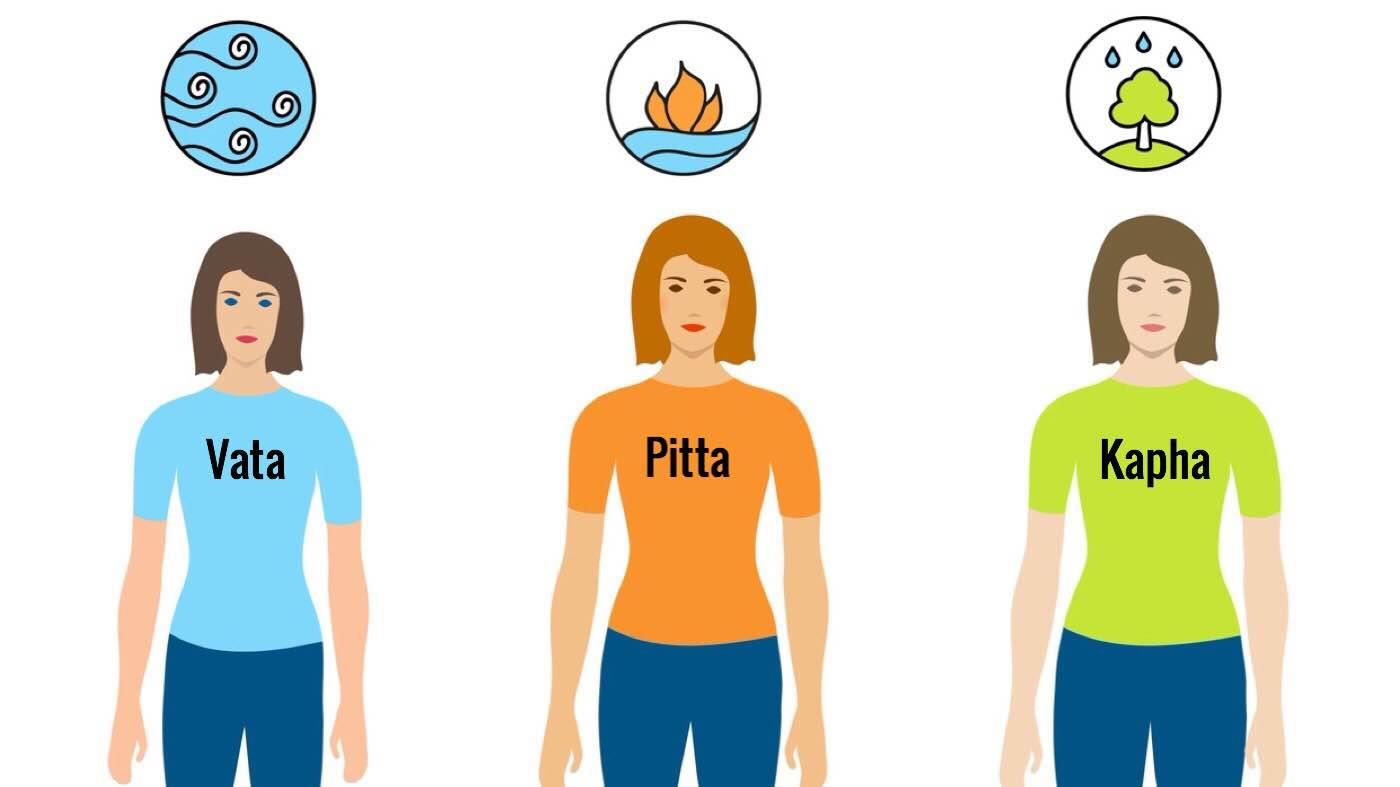
Consulting an Ayurvedic practitioner is the best way to determine which of the above types of stress apply to your constitution.
Stress Self-Care Tips
So how do you treat stress? If you find your stress symptoms are extreme or chronic, it is best to consult a professional health advisor. If you would rather take the natural, holistic, drug-free route, an Ayurvedic practitioner may be just what you need.
You can, however, still manage stress on your own. The following tips are recommended for most kinds of mild to moderate stress:
- Try Yoga. While Yoga postures like Sun Salutations are quite beneficial for all things, Pranayama (Yogic breathing) in particular is known to greatly reduce stress as it lowers blood pressure, stabilises breathing and regulates the heart rate. Recommended Pranayama exercises include Nadi Shodhana, Bhramari and Ujjayi Pranayama.
- Walk barefoot. Known as grounding or earthing, walking barefoot for as little as 10 minutes has been found to change the electrical activity of the brain. This assists in decreasing stress, moderating the heart rate, regulating the breath and emotional rhythms and improving sleep. A great tip for Electromagnetic Stress too, as it detoxifies the body from electromagnetic debris.
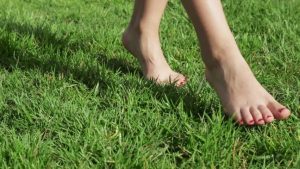
- Drink plenty of water when feeling stressed or anxious, or simply take a few sips if that’s what you prefer. Additionally, splash water onto your eyes and wash your feet before bed.
- Eat warming foods. Unless you have a Pitta excess and feel hot and flushed, try eating warm, spicy foods. Aim for anything containing vegetables and warm liquids. Go for spices like ginger, turmeric and red peppers but don’t go overboard if you can’t handle it!
- Sip on herbal teas. Ginger, peppermint and lemongrass tea are great for relieving stress and calming down.
Do you want to get rid of stress-related symptoms and benefit your overall health at the same time? Contact us today for a free no-obligation consultation on how we can best treat your condition.
All information and resources referenced in this article, including medicinal preparations, exercise and dietary recommendations, are based on the opinion of the author. All content is intended to inform and encourage the reader to seek professional advice if the following conditions and symptoms are present. No information in this article should be considered a diagnosis or prescription and none of it should be followed unless a health advisor is consulted first.

*Discover holistic healing with a complimentary phone or video consultation from our expert Ayurvedic practitioner. Start your path to better health today!*





















